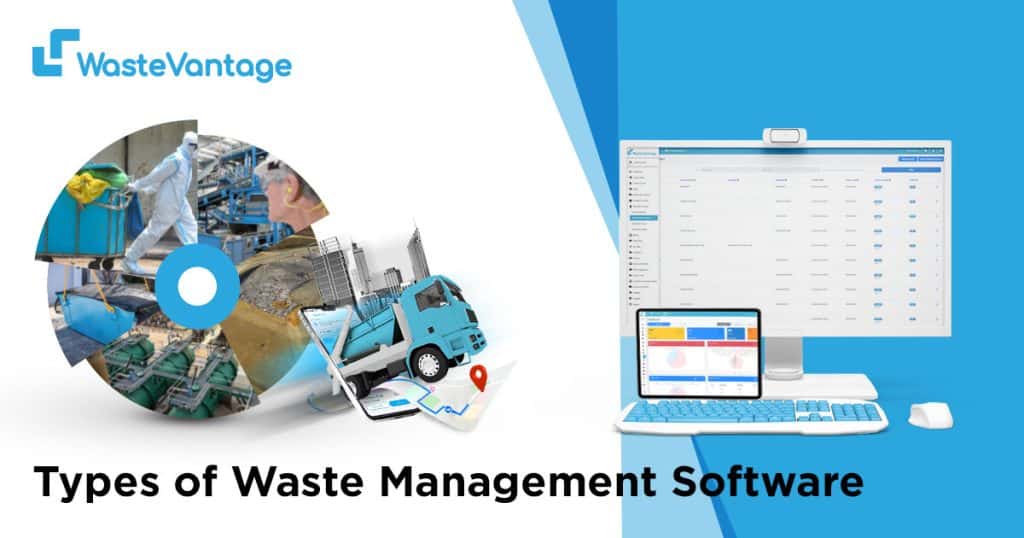
Efficient waste management is crucial for businesses, councils, and communities across Australia. From manufacturing waste to everyday rubbish collected by councils, new software solutions are helping organisations streamline waste handling, ensure they follow regulations, and promote more sustainable practices.
Here are 10 types of waste management software commonly used to make handling waste simpler and more efficient.
1. Waste Recycling Software
For businesses and councils focused on recycling, recycling management software simplifies the tracking and management of recyclable materials. It helps ensure that recycling is separated, collected, and processed efficiently.
This software is vital for organisations committed to reducing landfill waste and promoting sustainable practices.
2. Food Waste Management Software
Food waste management software is a digital tool that helps businesses, especially in the food industry, track and reduce waste by monitoring inventory, shelf life, and disposal. It offers features like waste tracking, analytics, and options for donating surplus food, making it easier for companies to save money, improve efficiency, and meet sustainability goals.
By integrating with other systems, this software provides a streamlined way to manage food waste and minimise its environmental impact.
3. Hazardous Waste Management Software
Industries that work with chemicals or biohazards, such as laboratories or certain manufacturers, use hazardous waste management software to safely handle these materials. This software ensures hazardous waste is safely stored, transported, and disposed of according to Australian regulations.
By doing so, it helps protect the community and the environment while keeping the business compliant with strict safety standards.
4. E-Waste Management Software
E-waste management software is a tool that helps businesses manage the collection, recycling, and disposal of electronic waste. It tracks inventory, organises pickups, and ensures compliance with environmental regulations, making it easier for companies to handle e-waste responsibly.
By using this software, businesses can streamline their recycling processes, reduce costs, and contribute to a more sustainable environment.
5. Industrial Waste Management Software
This software is designed for businesses in industries like manufacturing, where large amounts of waste are generated, often including hazardous materials. Industrial waste management software helps businesses keep track of all waste, ensuring safe and compliant disposal.
This is especially helpful for companies needing to meet strict environmental standards, as the software assists with both tracking and reporting waste activities.
6. Commercial Waste Management Software
This software helps businesses like restaurants, retail stores, and offices manage their everyday waste. It’s designed to handle the collection, recycling, and disposal of commercial waste while ensuring the business meets local regulations.
By automating and organising waste disposal processes, this software makes it easier for businesses to manage waste more efficiently and keep costs down.
7. Municipal Solid Waste Management Software
Municipal waste management software is used by councils to handle everyday rubbish collection and disposal services for residents. This all-in-one solution helps councils track and manage rubbish collection schedules, ensure regulatory compliance, and improve the overall efficiency of public waste services.
For towns and cities, this software is essential in keeping waste management services running smoothly.
8. Skip Bin Hire Software
Skip bin companies use this type of software to manage bookings, schedule deliveries and collections, and optimise logistics. For instance, WasteVantage’s skip bin software Australia enables businesses to track available bins, plan routes, and provide real-time updates for customers.
This helps skip bin companies operate more efficiently and offer a better service to their clients.
9. Waste Tracking Software
Waste tracking software is especially useful for businesses needing transparency and accountability in their waste processes. This software allows companies to monitor waste in real time from its point of origin to disposal.
By using this software, organisations can see exactly where their waste goes, making it easier to ensure that waste is handled responsibly and meets regulatory standards.
10. Fleet Management Software for Waste Collection
For councils and companies operating a fleet of waste collection vehicles, fleet management software can improve scheduling, route optimisation, and vehicle maintenance. By reducing fuel costs and emissions and improving efficiency, this software helps create a more sustainable waste collection process, which benefits both the organisation and the community.
These 10 types of waste management software play a vital role in improving the efficiency and effectiveness of waste processes across Australia. Whether you’re a business owner needing to streamline industrial waste processes or a council looking to improve recycling and waste collection, finding the right software can make a big difference in reducing environmental impact.
Interested in improving your waste management system? Contact iHub Logistics for a FREE online consultation to explore the best software solutions for your needs and start creating a positive impact on your operations and the environment today!
